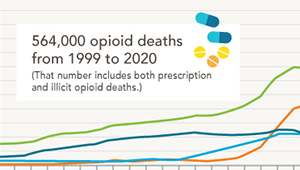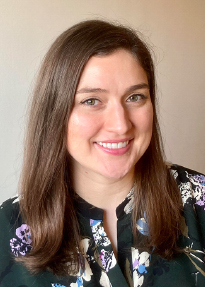Leah K. Hamilton, PhD
Biography
Leah Hamilton, PhD, MPhil, is an addiction health researcher focused on improving screening, assessment, and linkage to appropriate treatment and harm-reduction services for substance use disorders and associated behavioral health issues. She is particularly interested in improving access to these services among people involved in the criminal justice system through interventions rooted in implementation science.
At KPWHRI, Dr. Hamilton is a senior collaborative scientist currently serves as MPI for a formative evaluation of OUD and HIV risk identification and assessment in Washington (WA) State Prisons (The HOAP study). Dr. Hamilton co-leads the design, implementation and analysis of qualitative data collected from interviews with Washington state prisons staff, incarcerated people, and formerly incarcerated people. She also co-leads the design and analysis of observational field data of assessment processes and focus group strategy sessions, and the dissemination of study efforts. She is also a co-investigator on the Kaiser Permanente Social Needs Network for Evaluation and Translation (SONNET) center, where she is leading a study of Kaiser Permanente member experiences of the community support hub, and a co-investigator on a new PCORI supported study Addressing Social Needs to Improve Health in Adults with Multiple Chronic Conditions: A Comparative Effectiveness RCT, where she will lead qualitative interviews and analysis. Previously she has served as a co-investigator on implementation clinical trials (including the Primary Care Opioid Use Disorder Treatment (PROUD) trial and the Michigan Sustained Patient-centered Alcohol-Related Care (MI-SPARC) trial).
Prior to joining KPWHRI, Dr. Hamilton completed her postdoctoral fellowship in the Department of Population Health at New York University Grossman School of Medicine, where she contributed to a Clinical Trial Network study of screening and assessment for substance use in primary care settings (CTN-0062Ot), and a National Institutes on Drug Abuse-funded R01 study (R01DA045872) examining the impact on overdose mortality of public health policies that aim either to restrict the supply of opioids or to reduce opioid-related harms. She completed her PhD in Criminal Justice at Temple University in Philadelphia in 2019, and MPhil at Cambridge University, Institute of Criminology, in the UK in 2010, during which she worked on multiple studies of substance use and behavioral health among justice-involved populations.
Areas of research focus
-
Addictions
Screening, assessment, and linkage to care; addiction within justice-involved populations; harm reduction; policy impacts on overdose mortality
-
Behavior change
Unhealthy alcohol and drug use, health-related quality of life (HRQoL)
-
Social determinants of health
Justice involvement in addiction, and other aspects of behavioral and physical health
-
Health services & economics
Implementation science; electronic health record (EHR)-integrated screening, assessment, and brief intervention/referral to care
-
Mental health
Co-occurring substance-use and mental health disorders
Recent Publications
Hamilton LK, Lapham GT, Day A, Black-Watson M, Bishop D, Parsons D, Budimir CA, Baulckim L, Lee AK, Addis M, Bradley KA. Improving alcohol-related care in small-medium primary care practices: An evaluation of an adaptation of the SPARC trial intervention for small-medium sized practices. J Subst Use Addict Treat. 2025 Jun;173:209697. doi: 10.1016/j.josat.2025.209697. Epub 2025 Apr 12. PubMed
Lapham GT, Bobb JF, Luce C, Oliver MM, Hamilton LK, Hyun N, Hallgren KA, Matson TE. Prevalence of cannabis use disorder among primary care patients with varying frequency of past-year cannabis use. J Gen Intern Med. 2025 Apr;40(5):1039-1047. doi: 10.1007/s11606-024-09061-6. Epub 2024 Oct 24. PubMed
Hamilton LK, Bradley KA, Matson TE, Lapham GT. Discriminative validity of a substance use symptom checklist for moderate-severe DSM-5 cannabis use disorder (CUD) in primary care settings. Drug Alcohol Depend Rep. 2024 Jul 15:12:100260. doi: 10.1016/j.dadr.2024.100260. eCollection 2024 Sep. PubMed
McNeely J, McLeman B, Gardner T, Nesin N, Amarendran V, Farkas S, Wahle A, Pitts S, Kline M, King J, Rosa C, Marsch L, Rotrosen J, Hamilton L. Implementation of substance use screening in rural federally-qualified health center clinics identified high rates of unhealthy alcohol and cannabis use among adult primary care patients. Addict Sci Clin Pract.. 2023 Sep 20;18(1):56. doi: 10.1186/s13722-023-00404-y. PubMed
Lapham GT, Matson TE, Bobb JF, Luce C, Oliver MM, Hamilton LK, Bradley KA. Prevalence of cannabis use disorder and reasons for use among adults in a US state where recreational cannabis use is legal. JAMA Netw Open. 2023 Aug 1;6(8):e2328934. doi: 10.1001/jamanetworkopen.2023.28934. PubMed
Research

Increasing opioid use disorder treatment in primary care
A trial led by KPWHRI researchers found that adding nurse care managers helped more people get needed treatment.
Healthy Findings Blog

Talking to an addictions researcher
KPWHRI Collaborative Scientist Leah Hamilton, PhD, MPhil, answers questions about her recent and upcoming projects.
Mental Health

What’s the cost of mental health integration?
Kaiser Permanente Washington shows price may not be a barrier to primary care implementation, Dr. Kai Yeung reports.



